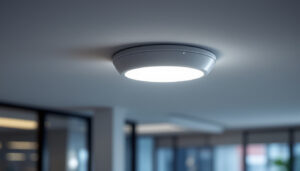

As the demand for sustainable and energy-efficient lighting solutions continues to grow, solar lights have gained significant popularity in both residential and commercial settings. However, lighting contractors face a unique set of challenges when it comes to the installation and maintenance of these systems. Understanding these challenges is essential for contractors looking to stay competitive in the evolving landscape of outdoor lighting.
Solar lights operate by converting sunlight into electricity, which is then used to power LED bulbs. This technology has advanced significantly, leading to improved efficiency and longer operational lifespans. However, the intricacies of solar technology can present challenges for contractors who may not be familiar with the specifics of solar energy systems. As the demand for sustainable energy solutions grows, understanding these nuances becomes increasingly important for both contractors and consumers alike.
In addition to the basic functionality, solar lighting systems often incorporate smart technology features, such as motion sensors and remote control capabilities. These advancements not only enhance the user experience but also contribute to energy savings by ensuring that lights are only activated when needed. As a result, contractors should stay informed about the latest innovations in solar lighting technology to provide clients with the most efficient and effective solutions available.
One of the primary challenges is the variability in solar panel performance due to factors such as location, weather conditions, and seasonal changes. Contractors must consider the geographical area where the lights will be installed, as some regions receive more sunlight than others. This variability can affect the overall efficiency and effectiveness of the solar lights, making it crucial for contractors to conduct thorough site assessments before installation. Understanding local climate patterns and solar exposure can help contractors recommend the most suitable products and configurations for each unique environment.
Moreover, the angle and orientation of solar panels play a vital role in their performance. Panels that are installed at the optimal angle can capture more sunlight throughout the day, thereby maximizing energy conversion. Contractors should be well-versed in the best practices for solar panel installation, including considerations for shading from nearby trees or buildings, which can significantly impact the efficiency of the system.
Another significant challenge involves the management of battery life. Solar lights typically rely on rechargeable batteries to store energy for nighttime use. The lifespan and performance of these batteries can be influenced by temperature fluctuations, charging cycles, and overall usage patterns. Contractors must choose high-quality batteries and educate clients on maintenance practices to ensure optimal performance over time. Additionally, understanding the different types of batteries available, such as lithium-ion versus lead-acid, can help contractors make informed decisions that align with the specific needs of their clients.
Furthermore, advancements in battery technology are continually emerging, offering improved energy density and longer lifespans. Contractors should keep abreast of these developments to provide clients with the most reliable and efficient options. Regular maintenance checks, including monitoring battery health and replacing batteries when necessary, can extend the life of solar lighting systems and enhance overall satisfaction for users. By addressing these aspects, contractors can ensure that solar lighting installations remain functional and effective for years to come.
While solar lights are often marketed as easy to install, the reality can be more complex. Contractors must navigate various installation challenges to ensure that the lights function effectively and meet client expectations.
Proper site preparation is essential for the successful installation of solar lights. This includes evaluating the landscape, identifying potential obstacles, and determining the optimal placement of solar panels for maximum sunlight exposure. Contractors may need to clear vegetation or adjust the terrain to create suitable conditions for installation, which can add time and labor costs to the project. Furthermore, factors such as seasonal weather patterns and local wildlife can impact the installation process. For instance, heavy rains or snow can delay site preparation, while animals may disturb the installation area, necessitating additional measures to protect the equipment.
Even though solar lights do not require traditional electrical wiring, contractors must still consider electrical aspects, such as the integration of solar panels with the lighting system. Understanding the electrical specifications of each component is vital to ensure compatibility and prevent issues during operation. Additionally, contractors should be prepared to troubleshoot any electrical problems that may arise during installation. This includes assessing battery capacity and ensuring that the solar panels can adequately charge the batteries during varying weather conditions. Moreover, contractors should also familiarize themselves with the latest advancements in solar technology, as these innovations can enhance the efficiency and longevity of the lighting systems, ultimately benefiting the client in the long run.
Educating clients about the capabilities and limitations of solar lighting is a critical aspect of the contractor’s role. Many clients may have misconceptions about solar lights, leading to unrealistic expectations regarding performance and maintenance.
Contractors must communicate clearly about what clients can expect from their solar lighting systems. This includes discussing factors such as brightness levels, battery life, and the impact of weather conditions on performance. By setting realistic expectations, contractors can help clients appreciate the value of solar lighting while minimizing dissatisfaction.
Another important aspect of client education is maintenance. Solar lights require periodic cleaning and battery replacement to function optimally. Contractors should provide clients with clear guidelines on how to maintain their solar lights and the importance of regular upkeep. This proactive approach can enhance customer satisfaction and lead to repeat business.
Lighting contractors must also navigate various regulatory and compliance issues when installing solar lights. These regulations can vary significantly depending on the location and type of installation.
Before beginning any installation, contractors should familiarize themselves with local permitting and zoning regulations. Some areas may have specific guidelines regarding the placement of solar panels and lighting fixtures, particularly in residential neighborhoods or historical districts. Failure to comply with these regulations can result in fines or the need to remove installed lights, which can be costly and time-consuming.
Safety is paramount in any installation project. Contractors must ensure that all solar lighting systems comply with relevant safety standards, including electrical codes and environmental regulations. This may involve conducting inspections and obtaining necessary certifications, which can add complexity to the installation process.
The growing popularity of solar lighting has led to increased competition among contractors. As more companies enter the market, pricing pressures can make it challenging for contractors to maintain profitability while delivering high-quality services.
To remain competitive, contractors must develop effective pricing strategies that reflect the value of their services while remaining attractive to potential clients. This may involve offering bundled services, such as installation and maintenance packages, or providing financing options to help clients afford solar lighting solutions.
In a crowded market, building a strong reputation is essential for attracting and retaining clients. Contractors should focus on delivering exceptional service, providing quality products, and fostering positive relationships with clients. Online reviews and word-of-mouth referrals can significantly impact a contractor’s success, making it vital to prioritize customer satisfaction.
The solar lighting industry is continually evolving, with new technologies and innovations emerging regularly. While these advancements can provide opportunities for contractors, they also present challenges in terms of adaptation and staying current with industry trends.
Contractors must invest time and resources into staying informed about the latest developments in solar lighting technology. This includes understanding advancements in solar panel efficiency, battery technology, and smart lighting solutions. By keeping up with these trends, contractors can offer clients the most up-to-date products and services, enhancing their competitive edge.
As technology evolves, so too must the skills of the workforce. Contractors should prioritize ongoing training and skill development for their teams to ensure they are equipped to handle new technologies and installation techniques. This investment in human capital can lead to improved project outcomes and increased client satisfaction.
While solar lighting is often seen as a sustainable solution, contractors must also consider the environmental impact of their installations. This includes evaluating the materials used in solar lights and ensuring that the installation process minimizes disruption to the surrounding ecosystem.
Choosing environmentally friendly materials is crucial for contractors looking to promote sustainability. This may involve selecting solar lights made from recycled or recyclable materials and ensuring that the manufacturing process adheres to environmentally responsible practices. By prioritizing sustainable materials, contractors can enhance their reputation as eco-conscious professionals.
Contractors should also be mindful of the ecological impact of their installations. This includes avoiding damage to local flora and fauna during site preparation and installation. Implementing best practices for environmental stewardship can help contractors build trust with clients and demonstrate their commitment to sustainability.
The landscape of solar lighting presents both opportunities and challenges for lighting contractors. By understanding the unique challenges associated with solar lights—from technology and installation to client education and regulatory compliance—contractors can better position themselves for success in this growing market. Emphasizing quality service, ongoing education, and sustainable practices will not only enhance client satisfaction but also contribute to a more sustainable future for outdoor lighting solutions.
Ready to overcome the challenges of solar lighting installations and elevate your services? LumenWholesale is here to support you every step of the way. We provide contractors with high-quality, spec-grade solar lighting products at unbeatable wholesale prices, ensuring you can tackle any project with confidence. Say goodbye to local distributor markups and hello to our extensive selection that meets the highest industry standards. With free shipping on bulk orders, you can trust that you’re getting premium lighting at the best value — without hidden fees or compromises. Elevate your outdoor lighting solutions today by visiting Wholesale Lighting at the Best Value and experience the LumenWholesale difference.

Explore how UFO LED high bay lights are transforming the lighting industry and boosting contractors’ profits.

Discover the essential insights lighting contractors need to know about outdoor lighting fixtures.

Discover why staying updated on the latest LED shop lights is crucial for lighting contractors.

Explore the essential insights every lighting contractor needs to know about fluorescent lights, from energy efficiency to installation tips, in this comprehensive guide.
Get notified when NEW deals are released.
Optimize your budget with wholesale discounts.
Only top-quality, specification-grade lighting products.
No additional costs at checkout - what you see is what you pay.
We understand the unique needs of contractors.